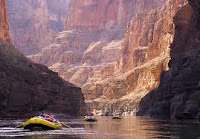Posted on January 11, 2021
This post is an update of my January 11, 2010, post:
Francium,  too, is radioactive and experiences this kind of spontaneous decay, becoming astatine, radium, or radon. Radioactive elements are dangerous because of the radiation and high-energy particles they release.
too, is radioactive and experiences this kind of spontaneous decay, becoming astatine, radium, or radon. Radioactive elements are dangerous because of the radiation and high-energy particles they release.
As a matter of fact, francium is the most unstable of all the elements that occurs in nature. Scientists estimate that there is no more than one ounce of francium in all of the earth’s crust at one time. That makes it the second rarest naturally-occurring element!
Since Perey discovered the element, she got to name it. Francium was her second sugg
estion and honors France as the place of discovery.Last to be discovered…now on to creating new elements!
Perey’s discove ry of francium was the last discovery of a naturally-occuring element. But scientists have created (or synthesized) other elements in nuclear reactors and particle colliders. (A few of these elements have actually been discovered in tiny amounts, in nature, after first being synthesized.)
ry of francium was the last discovery of a naturally-occuring element. But scientists have created (or synthesized) other elements in nuclear reactors and particle colliders. (A few of these elements have actually been discovered in tiny amounts, in nature, after first being synthesized.)
Some of these elements have been named after the place in which they
were created, following Perey’s example of naming her discovery after her country. So many of the elements were first created in America, scientists started to run out of place names. Look at this list:Americium – created in 1944, at the University of Chicago, U.S. of America
Berkelium – created in 1949, at the University of California, Berkeley, USA
Californium – created in 1950, at the University of California, Berkeley, USA
Lawrencium – created in 1961, at the University of California, Berkeley, USA, in the Lawrence Radiation Lab
Other elements were named after famous scientists (although not the scientists who created them!). Who is each of these elements named for?
1. Curium
2. Einsteinium
3. Fermium
4. Mendelevium
5. Nobelium
ANSWERS:
Here is a game that can help you learn the Atomic Symbols of each element.
This visual periodic table is beautiful, with pictures and videos and lots of info (click around, of course!).
Now, for some common stuff…
Francium is a heavy, unstable, extremely rare element. But all around us are lighter, stable, common elements. Can you match the element name with the description?
1. Carbon
2. Oxygen
3. Helium
4. Nitrogen
5. Gold
6. Hydrogen
7. Chlorine
8. Aluminum
A. Atomic number 1 – the simplest, lightest, most common element in the universe
B. Atomic number 2 – used inside lighter-than-air toys, it’s safe because it doesn’t react to other elements
C. Atomic number 6 – the building block of life because it forms chains and rings easily
D. Atomic number 7 – most of the air we breathe is made of this
E. Atomic number 8 – something plants get rid of, but that animals (and also fires!) need
F. Atomic number 13 – a lightweight, silvery metal
G. Atomic number 17 – a poisonous gas that, when mixed with a particular poisonous metal, makes yummy salt!
H. Atomic number 79 – a heavy yellow metal
ANSWERS:
Also on this date:
Plan ahead:
-
January holidays
-
January birthdays
-
Historical anniversaries in January
-
February holidays
-
February birthdays
-
Historical anniversaries in February


















